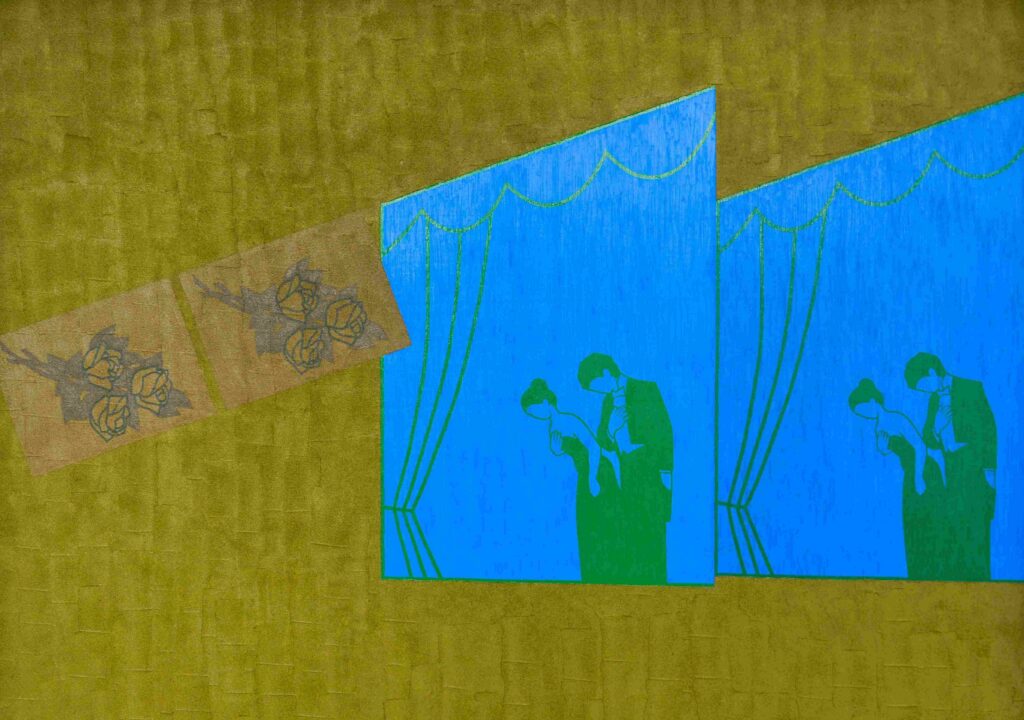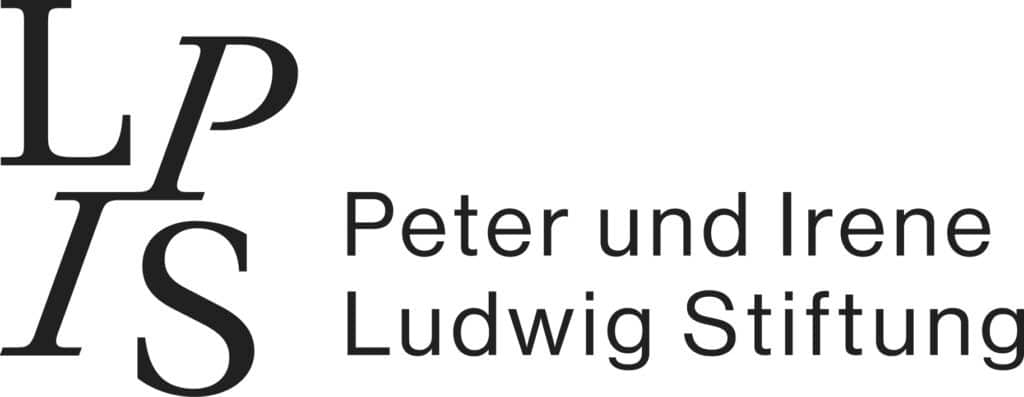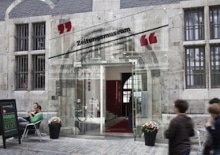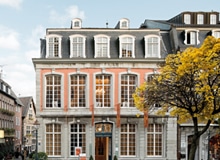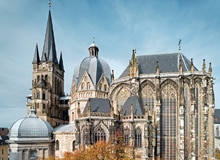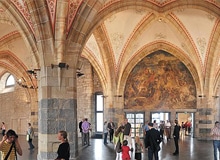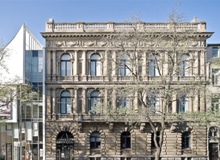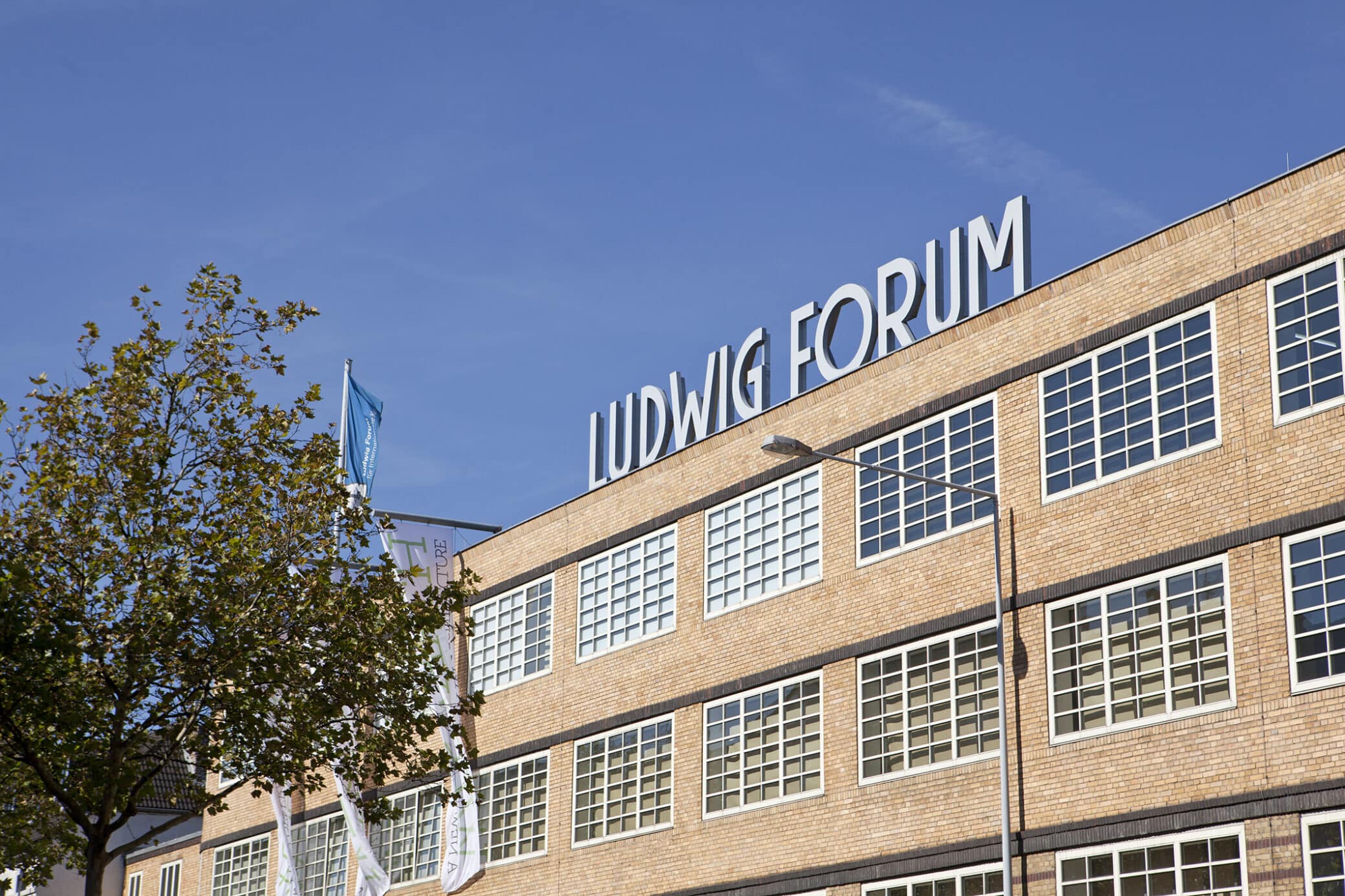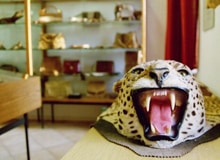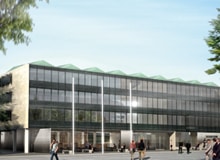Opening: Thu, March 14, 2024, from 6.00 pm
Exhibition tour with Galina Dekova: 6.00 pm
Welcome: Eva Birkenstock, Heinrich Brötz: 7.00 pm
Introcution: Galina Dekova and
Lecture by Yuri Leiderman (in English): 7.30 pm
With Sergey Anufriev, Volodymyr Budnikov, Mykola Filatov, Sergey Geta, Evgeni Gordiets, Eduard Gorochovskij, Ilya Kabakov, Andrij Kocka, Yuri Leiderman und Andrey Silvestrov, Jurij Luckevič, Petro Markovič, Anatolij Mašarov, Daniel Mitljanskij, Vera Morozova, Halyna Neledva, Oleh Petrenko, Arkadij Petrov, Larisa Rezun-Zvezdočetova, Viktor Ryžich, Lyudmila Skypkina, Oleksandr Tyšler, and Leonid Vojcechov
The Ludwig Forum for International Art is home to around 1,800 paintings, sculptures, and works of the graphic arts from the former Soviet Union and central, eastern, and southeastern Europe which Irene and Peter Ludwig collected between 1979 and 1996. Fragments of a reality that once was marks the launch of a re-examination, re-positioning, and new exploration of sections of this collection which in the past were inventoried under the category “Art from the USSR” and about which there is little information down to the present day. Moreover, the respective works and artistic positions will be re-contextualized in relationship to current art and cultural discourses, an approach facilitating a critical inquiry into the prevailing Western perspective on “Eastern European art.” This first exhibition of the research project of the same name considers a series of art works which are connected in various ways with Ukraine. The exhibition undertakes a revision, examining the vague and imprecise categorizations, terminologies, and contextualizing narratives–whether they be geographical, political, or art historical–with the aim to do justice to the diversity and complexity of a region most recently racked by tension and violence.
That this requires changing established viewing habits is evident in the very first room of the exhibition, where works from the 1970s and 1980s are presented which, at first glance, seem to belong to the Classical Modernism of the 19th and early 20th centuries. They were created in response to the doctrine of Socialist Realism, which prescribed that art was to serve the sole purpose of justifying progress towards a communist society. Against this background, the seemingly anachronistic paintings of countryside idylls like Family in Donbas (1970) by Arkadiy Petrov and Gurzuf (1972) by Yuriy Lutskevych unfold their emancipatory potential. The withdrawal into the private sphere and to remote places, beyond the grasp of the central government, was characteristic of the subversive undermining of this normative doctrine. In a conscious turn away from the official aim of unifying all artistic production under the sign of communism, the retreat into a private domain and the drawing of inspiration from national patriotic motifs within the individual Soviet republics were typical forms of an–albeit defensive–artistic resistance.
The exhibition also explores the legacy of the “Russian avantgarde.” Paintings by Oleksandr Tyshler from the 1960s and 1970s reveal the universal character of the avantgarde and the subsequent metaphysical-figurative painting of the early 20th century, demonstrating how the aesthetic and revolutionary programs became a pivotal reference point for many later artists in the Soviet era. In turn, the large-format works of Leonid Voytsekhov Angling Season (1989) and End of the Performance (1987) are key examples of a pictorial language, widespread in Ukrainian contemporary art at the end of the 1980s, that engages, at times ironically, with an already disintegrating Soviet Union.
The eight-part silkscreen series Games (1983) by Eduard Gorokhovsky is also to be seen in this light. The starting point of the series is the photographic portrait of an aristocrat couple. Petrified in their poses, the artist places in them in various contemporary situations, where they listlessly play their roles, whether in sports, as flight stewards, or at a press conference. The “total and absolute ignorance of the persons on the old photograph about how they have become objects in a complex, ingenious, and contrived game,” as Ilya Kabakov wrote, is also an expression of the rigid social conventions the artist challengingly questions. The critical scrutiny of traditional role models also resonates in the assemblage Nature and Imagination (1990) by Larisa Rezun-Zvezdochetova. Together with Leonid Voytsekhov and Yuri Leiderman, in the 1980s she was active in Odessa’s unofficial art scene, which organized performance actions and exhibitions in private studios, apartments, or outdoors in nature. Affiliated with this art scene was the Ukrainian-born Ilya Kabakov, cofounder of Moscow Conceptualism, who in his work In the Corner (1977-88) addressed the emptiness that gained such an important symbolic meaning in the face of the omnipresent state and the absence of social freedoms. In their video work Odessa. Fragment 205 (2015), Yuri Leiderman and Andrey Silvestrov take up the history of Odessa and pose questions about Ukrainian identity by engaging with two important artists: Valentin Khrushch and Oleg “Pepper” Petrenko. The exhibition also documents other performance actions and protagonists who were involved in Odessa’s unofficial art scene in the 1980s.
The very different artistic encounters in and with Ukraine in the Ludwig Collection reveal that we face the enormous challenge of always looking back at Fragments of a reality that once was. Instead of clearcut categories, for example like those of conformist and nonconformist art or specific national traits and attributions, in-between zones and spaces as well as disunities and dissonances emerge and come into play in this contextualizing revision. With its the goal of reapproaching the collection holdings categorized under the monolithic generalization “Eastern European art,” the research project brings to light works, yet to be exhaustively studied and hardly ever shown, which Peter and Irene Ludwig acquired from behind the Iron Curtain. The classificatory systems used for these works and the accompanying historical narrative are to be revised and an alternative terminology found, while the new historical framing aims to decolonize the art historical field and adopt a perspective capable of taking into account the diversity of the individual cultural regions and spheres within the former USSR and other onetime Eastern bloc countries.
Curated by Galina Dekova
Research fellow, NRW Art Museums
Generously supported by the Ministry of Culture and Science of North Rhine-Westphalia.
Public Program
Curator’s tour with Galina Dekova
Thursday, March 14, 2024, 6 pm
Lecture by Yuri Leiderman
Thursday, March 14, 2024, 7.30 pm
Yuri Leiderman (born 1963 in Odessa, Ukraine), artist and writer, is seen as part of the movement of Moscow conceptualists. He started contributing to apartment exhibitions in Moscow and Odessa in 1982. In 2005 he was awarded the Andrei Belyi Prize for Literature. From 2008 to 2010 he was a member of the artist groups “Kapiton” and “Corbusier.” In 2011 he took part in the 68th Venice International Film Festival with the film Birmingham Ornament (A. Silvestrov/Y. Leiderman). Leiderman lives and works in Berlin.
Curator’s tour with Galina Dekova
Thursday, March 17, 2024, 6 pm
Curator’s tour with Galina Dekova
Thursday, August 15, 2024, 6 pm
Curator’s tour with Galina Dekova
Thursday, September 5, 2024, 6 pm
Image: Leonid Voytsekhov, End of the Performance, 1987, Oil on canvas, 144 x 200 cm, Ludwig Collection, Loan Peter and Irene Ludwig Foundation. Photo: Ludwig Forum.
